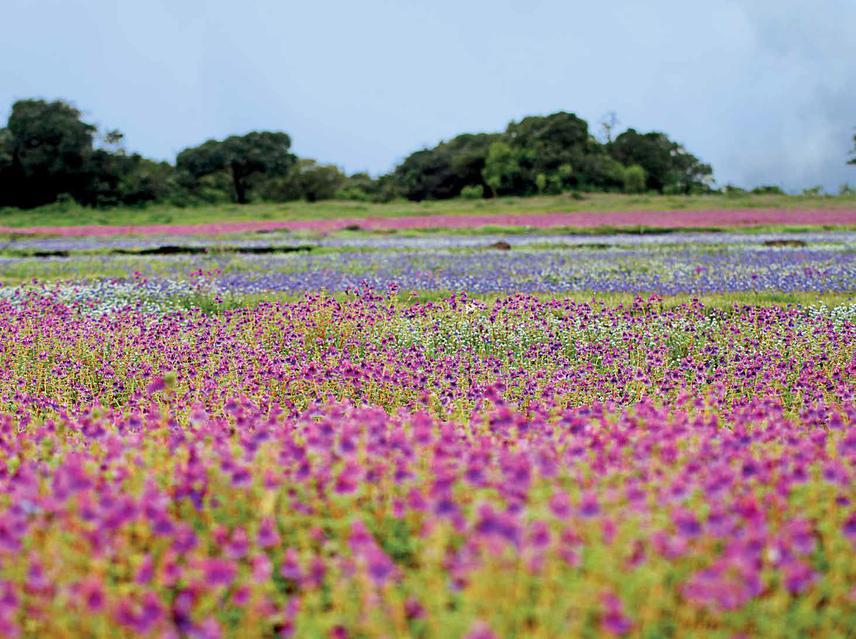Prerna Agarwal
The present project focuses on addressing threats posed by drastically rising tourism (around 350,000 tourists were estimated by the local forest department in the year 2011) on Kas plateau, part of the Western Ghats sub cluster, a UNESCO World Heritage site.

Lateritic plateaus are a unique landscape feature of the Northern Western Ghats, India. These rocky plateaus support rich biodiversity with high percentage of endemism. However, due to the seasonal nature of this habitat and lack of woody plants, these areas are often classified as ‘barren lands’ in the Wasteland Atlas of India, thus paving the way for many developmental projects.
Kas, one such representative high altitude lateritic plateau (approx. 1213m asl) in Satara district, Maharashtra is a UNESCO World heritage site for exceptional natural beauty and aesthetic importance. An area of only 1792 hectares supports around 450 flowering plants of which 20 are narrow-niche endemics and around 15 are threatened (IUCN and Botanical Survey of India criteria). Recently, two new plant species have been discovered from this poorly studied habitat. Mass blooming of flowers during the monsoons, media attention and proximity to megacities has lately made Kas a major tourist attraction. High levels of trampling and littering could have a serious negative impact on these extremely sensitive plant communities and insect pollinated ephemerals.
A sound conservation management plan is necessary to regulate tourism for protecting this fragile habitat. Our study is interdisciplinary in nature combining quantitative ecological surveys through vegetation plots to assess impact of tourist trampling, with qualitative interviews of tourists and locals, capacity building workshops, awareness drives and solid waste quantification to develop suggestions for ecotourism. The work will provide baseline information to inform eco-tourism management guidelines for conservation of this threatened habitat.